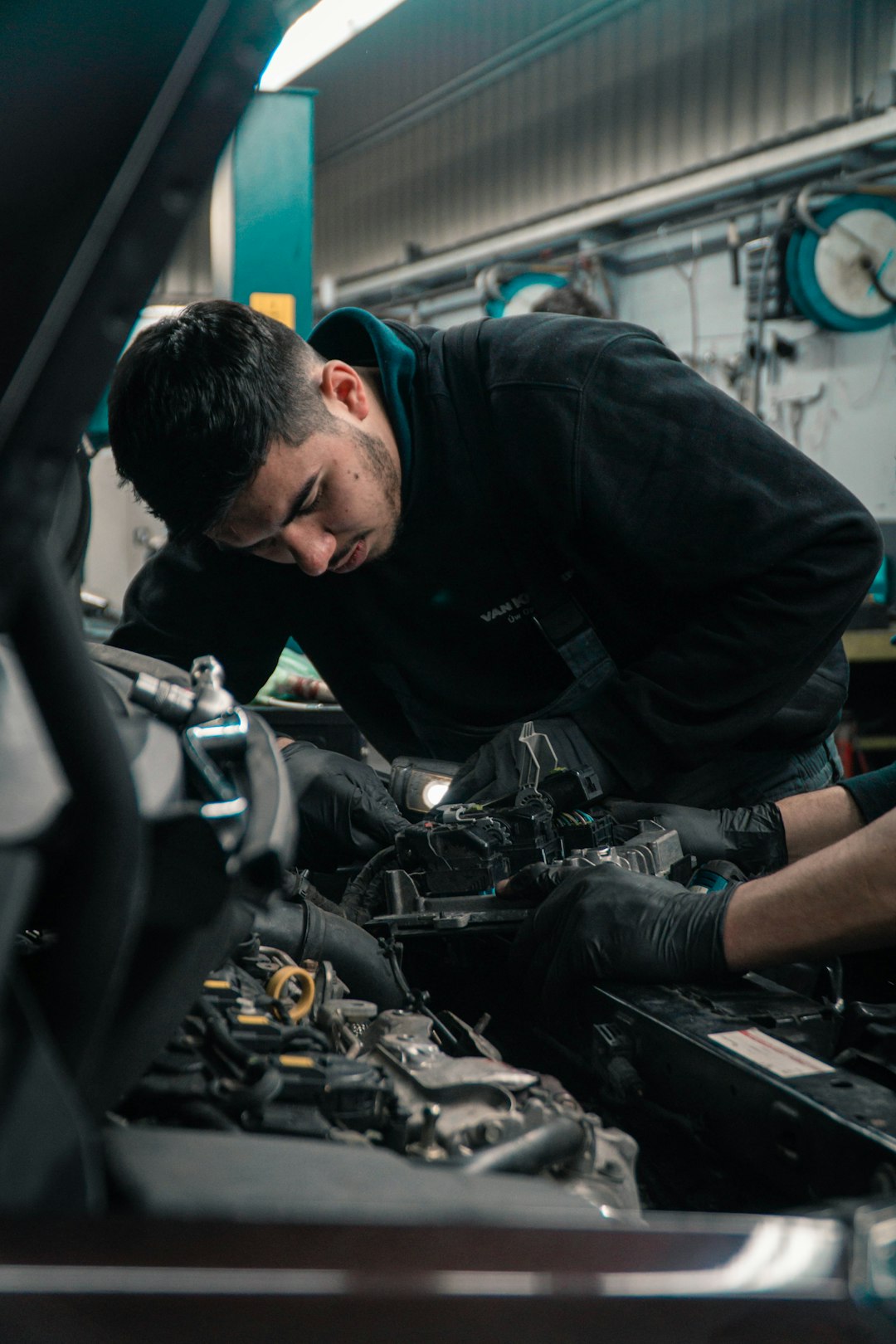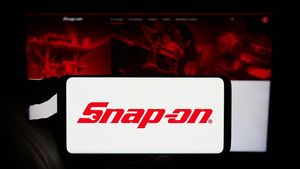Financial News
Take Action Against NHTSA Vehicle Recalls and Defective Product Liability
 Photo from Unsplash
Photo from Unsplash
Originally Posted On: https://www.1800thelaw2.com/resources/vehicle-accident/vehicle-recalls-defective-product-liability/
Reading news headlines, it can start to feel like vehicle safety recalls are being issued daily. While the number of car complaints and vehicles affected continues to grow, you might ask yourself if this means vehicle safety is declining?
The truth is that it depends on the model, make, and year of manufacturer of the car you drive. Many recent automobile recalls have to do with older vehicles, and we’ve seen some historically massive recalls in recent times. One example is the Takata airbag recall, which is still growing.
Headlines boast big numbers, but they don’t provide much detail. So, how dangerous is a recall anyway, and what should vehicle owners do after it’s identified to keep their car safe?
Understanding Vehicle Recalls and How to Keep Your Car Safe
What is a Recall on a Car?
A car recall is a way for manufacturers to warn you that something about your vehicle presents a potential for injury or property damage. After the National Highway Traffic Safety Administration (NHTSA) determines a safety risk exists, they issue a recall, and manufacturers are required to fix the problem.
Safety Defects
A safety defect is a problem that:
- poses a risk to vehicle safety
- exists in a group of vehicles of the same design or manufacture
Whether the manufacturer offers you a refund, or free repairs or replacements, you should never be on the hook for costs associated with recall fixes.
If your vehicle, car seat, or tire is under recall, a safety defect has been identified through the recall process.
National Highway Traffic Safety Administration Recalls Process
In the U.S., the NHTSA sets safety standards that keep your car safe. Part of what the NHTSA does is require manufacturers to repair safety-related defects at no cost to vehicle owners and drivers.
Costs associated with the parts and labor that go into getting defects repaired are significant for manufacturers and can lead to resistance to full-scale recalls. However, the NHTSA follows a recall process to ensure that safety-related defects are addressed. The process is as follows:
Car Complaints
Sometimes, manufacturers discover hazards and start the recall process willingly. For other manufacturers, the NHTSA or the courts kick-start the recall process. The latter can come from consumer discovery. If you find a safety concern, there are three ways to report it to the NHTSA:
- Call the U.S. Department of Transportation’s Vehicle Safety Hotline: 888-381-2296 or 866-440-3731.
- Report the issue online here
- Send a letter addressed: S. Department of Transportation National Highway Traffic Safety Administration Office of Defects Investigation (NVS-210) 1200 New Jersey Avenue SE Washington, DC 20590
ODI Investigation
If there are enough reports about the same issues with the same make, model and year of the vehicle, the NHTSA may open an investigation. At this point, the Office of Defects Investigation (ODI) will take charge of performing the car recall investigation. The investigation process is as follows:
- Screening: Review of consumer complaints to determine whether an investigation is necessary
- Petition Analysis: Review of petitions for defect investigations
- Investigations: Two-phase investigations into alleged safety defects
- Recall Management: Monitoring the effectiveness of safety recalls
NHTSA Issues a Car Recall
Manufacturers can dispute claims and present new information, but ultimately it is up to the NHTSA, or National Highway Traffic Safety Administration, to issue a safety defect recall.
- Once the recall is issued, the word is spread, and consumers are informed of the next step. Most often, consumers are asked to make an appointment with their dealership to service their vehicle.
If you’re worried about recalls and aren’t sure whether your vehicle may be affected, you can subscribe to notifications.
Frequently Asked Questions About Vehicle Recalls
Is My Car Under Recall?
You may wonder, “Is my car safe or under recall?” If it is, you will receive a notification letter. Within 60 days of notifying NHTSA of an auto recall decision, manufacturers must notify registered owners within a reasonable period.
You can always sign up for email notifications for NHTSA recalls by visiting this link.
Additionally, you can check the NHTSA recall database to see if your car is under recall. You can do this by searching your car’s 17-character vehicle identification number (VIN).
You may be curious if recalls affect some manufacturers more than others, and the answer is that auto recalls vary by make and model.
What Are the Vehicle Recalls by Make and Model?
Using data from the National Highway Traffic and Safety Administration (NHTSA) recall database, a study identified least and most vehicle recalls by manufacturer.
Top 10 Highest Recall Rates
- Mercedes-Benz C-Class
- GMC Sierra
- BMW 3/4 Series
- Dodge Durango
- Nissan Pathfinder
- Ram Pickup
- Toyota 4Runner
- Dodge Charger
- Chrysler 300
- Chevrolet Tahoe
Top 10 Least Recalled Cars
- Hyundai Accent
- Chevrolet Equinox
- Toyota Corolla
- Honda Civic
- Honda CR-V
- Honda Accord
- Subaru Crosstrek
- Toyota Camry
- Hyundai Elantra
- GMC Terrain
We understand what prompts a recall, but what types of product defects are considered “safety-related” and therefore monitored by the NHTSA?
Car Manufacturers and Defective Product Liability
Common Product Defects Considered Safety-Related
- Steering mechanisms that break suddenly, causing loss of vehicle control
- Accelerator controls that break or stick
- Wheels that crack or break
- Seats that fail during normal use
- Airbags that deploy when they are not intended to deploy
- Car seats with defective safety belts, buckles, or parts that create a risk of injury
Common Product Defects Not Considered Safety-Related
- Ordinary wear of equipment is required to be checked, maintained and replaced regularly, like brake pads
- Excessive oil consumption
Car Recall FAQs
Who Is Responsible for Reporting a Safety Recall?
Manufacturers are responsible for their vehicles and all original equipment installed on them. Meaning they have the responsibility to report defects to the NHTSA, notify owners and offer them a free fix to the problem.
Equipment not originally installed by the vehicle manufacturer is the responsibility of the equipment manufacturer to notify, report, and recall.
It’s essential to ensure your vehicle registration is up to date (including your mailing address) to get proper notification.
To check if your car is on the NHTSA recalls list, use their vin number lookup. Kelly Blue Book, or KBB, also has an auto recall checker on their website.
Do I Have to Pay for Repairs to Keep My Car Safe?
Manufacturers must cover the cost of safety defect fixes. If you pay for any costs associated with the recall, you are entitled to reimbursement, which may even include the costs you incurred before the recall announcement. Manufacturers must reimburse owners for expenses they footed up to one year before the notification of a defect.
Can I Take Action for Injuries I May Have Suffered During Vehicle Recalls?
Yes, your best course of action is to consult with a recall lawyer to explore legal options and compensation. Call 1-800-THE-LAW2 for a free consultation and to speak with a defective product lawyer today.
More News
View More




Recent Quotes
View More
Quotes delayed at least 20 minutes.
By accessing this page, you agree to the Privacy Policy and Terms Of Service.



